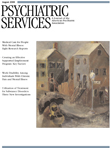HIV prevalence among people with severe mental illness is roughly ten times the national average. Inpatient and outpatient workshops in clinical settings have improved knowledge, attitudes, and risk-reduction behaviors in this population.
This project took a successful manual-based HIV prevention intervention from the inpatient setting and adapted it to the clubhouse setting in the south Bronx in 2006 and 2007. Clubhouses are traditionally refuges from the medical model of health care, and education is a central pillar of clubhouse activities. The clubhouse can be an indispensable site for preventive health education in the community. This is the first report of a community-based HIV prevention program in the Bronx and the first such report from any clubhouse in the United States.
Accurate knowledge about HIV transmission is already at high levels. This workshop focused on building skills through hands-on, group, and role-play activities to reduce anxiety and improve decision making in real-life situations. Activities included practicing condom use and role playing various scenarios, such as discussing past risky behaviors with a new sexual partner, assertively negotiating condom use with a sexual partner, deflecting peer pressure to use alcohol and drugs, pursuing safe sex practices while intoxicated, and managing coercive situations.
Workshop sessions were advertised, coordinated, and facilitated by a family and social medicine resident with medical school experience working in the clubhouse setting. The clubhouse director collaborated on advertising at affiliated residential sites in the month leading up to each new round of the workshop. The director also attended some of the first workshop sessions to help integrate the workshop facilitator into the clubhouse community.
The south Bronx clubhouse is linked to five geographically disparate residential sites with a total clientele of roughly 360. During three offerings of the workshop over 18 months, 47 consumers participated, representing roughly 13% of the target population. The workshop was consistent with participation rates at other unrelated clubhouse activities.
The workshop initially consisted of ten weekly sessions with incentives that included public transportation passes, beverages, and condoms at each session. Classes were scheduled as a lead-in to weekly free clubhouse dinners. In order to improve attendance and decrease turnover, the workshop was reduced to six sessions, and a modest attendance prize was given at the final session. Through these interventions, average attendance increased from five to seven persons per session, and the average number of week-to-week returning participants jumped from three to six. After steady attendance improvements over three iterations, a fourth round offered within two months of the previous session failed to recruit participants, suggesting that the workshop would sustain semiannual repetition but not quarterly repetition.
With institutional review board approval from Montefiore Medical Center, we conducted anonymous surveys during the first and last sessions of each round of the workshop. Questions for the survey were borrowed from previously validated survey instruments in the domains of demographic characteristics, risk factor inventory, knowledge, self-efficacy, and customer satisfaction. Entrance and exit surveys were matched by mother's birth date, allowing preservation of anonymity. Transit passes with a value of $10 were given as an incentive to participants completing both the entrance and exit surveys. More than 40 surveys were completed, but only seven participants completed both the entrance and exit surveys. Respondents were mostly single, African American, and ages 25 to 49, with roughly an equal number of men and women. Despite promising trends in knowledge (from 68% to 80%) and self-efficacy (from 77% to 84%), the sample was too small to analyze.
Future directions for the project include expansion of the curriculum to include other preventive health topics such as nutrition. Success of the workshop at the clubhouse led to an invitation to train staff in HIV prevention at affiliated residential sites. The initial group that attended the workshops may not be the group most at risk, and expansion into the residential sites would therefore be vital. Links were established with Montefiore's medical school affiliate, Albert Einstein College of Medicine, in order to provide an ongoing, reliable source of workshop facilitators.
HIV is a serious yet neglected problem among people with severe mental illness. Clubhouses are an underutilized facility for preventive health education in the community. This intervention deserves further evaluation as a model for dissemination to clubhouses across the country.

